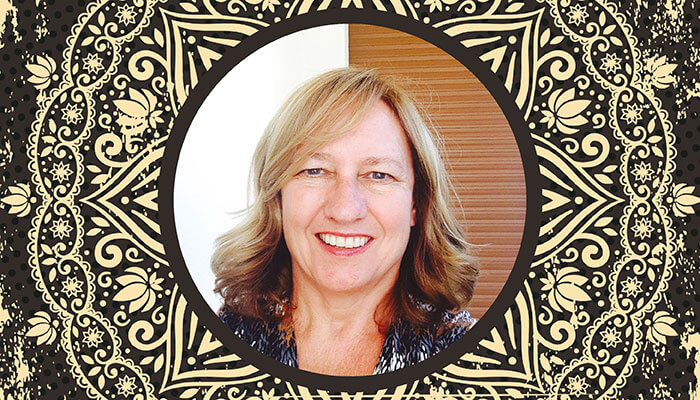
Why ophthalmology?
When I was in medical school, I met a lovely anatomy demonstrator – a hippie with long hair and open sandals – who told me: “You should choose eyes because people shut them at night.” I’ve never liked getting woken up, so I thought it sounded nice! The other reason? You sit down to operate in ophthalmology – none of this 12-hour standing business. You also get to treat a lot of people and have them say “thank you” at the end of the day, which is more than you can say for some specialties.
Had you ever considered doing anything else?
I had always liked making things; I did a lot of sewing and woodwork as a child – so I knew I wanted to do something with my hands. I had thought of making a career in ENT surgery, but it was a shrinking specialty. Ophthalmology is growing.
You lead a VISION 2020 link program – how did that come about?
I had always been interested in working abroad, but I didn’t have the chance to go while my children were small. It was only when they got older that I set up the link, through the London School of Hygiene and Tropical Medicine which organized links between UK eye departments and eye departments in Sub-Saharan Africa. The Royal Free Hospital, where I was a consultant at the time, was paired with the Makerere University and the National Referral Hospital, Mulago in Uganda. It was another big training center, so I felt at home there.
How did it work?
We would take six or seven people out every year and bring six or seven back, for around two weeks at a time. If schedules allowed, we would also take part in outreach programs. It was common to turn up to a remote village and find 500 people waiting to see us.
What are you working on now?
As part of VISION 2020, we’re working with locals to improve the quality and quantity of eye care in Uganda. Most patients have no access to professional help, and they are going blind from treatable conditions as a result. We know the number of people with diabetes in Africa is going to double in the next 10 to 20 years. Africans often have very high blood pressure, making diabetes very difficult to control – especially if they don’t have access to consistent medication. It also means patients are at risk of other complications, such as retinopathy, neuropathy, kidneys problems, heart disease and strokes.
You were Chair of postgraduate ophthalmology training for six years – how did that come about?
I started by training our trainees and medical students at the Royal Free Hospital, and eventually became Head of Training for North London. After that I ran basic sciences exam for the Royal College of Ophthalmologists and completed a certificate in medical education.
What is the most important skill for a leader?
To be able to listen. The good Lord gave us two ears and one mouth, and they should be used in that proportion.
Tell us more about the International Council of Ophthalmology.
We run examinations in 132 different centers across 81 countries, with all papers sat on the same day each year and now twice a year. We offer advanced ophthalmology examinations, along with seven sub-specialty papers, including glaucoma, neuro-ophthalmology, uveitis and ocular plastics. I wouldn’t go so far as to say it’s a logistical nightmare, but it’s certainly a challenge that the office staff manage with amazing efficiency.
Can you give an example?
We recently had eight people sitting an exam in Damascus. It hasn’t seen as much conflict as the rest of Syria, but it has still experienced significant trouble. We tried to send somebody to do the invigilation, but they wouldn’t let the person enter the country. And we are still waiting to get their papers back.
What’s exciting you in ophthalmology right now?
For the first time, diabetes-related blindness has gone down in the UK, despite the fact that the number of people with diabetes has gone up – and it’s all down to our excellent screening and treatments.
Any wishes for the future?
I would really like there to be an improvement in cataract surgery in Sub-Saharan Africa, with better access to care – and better quality of care – for people in rural locations. In the UK, I would like to see anti-VEGF agents that can be given once a year, as opposed to once a month – it would make a big difference.
When you’re not working, what do you enjoy?
I cook; I garden; I take Italian classes. And I still love fabrics and sewing – right now, I’m really interested in art quilts.
